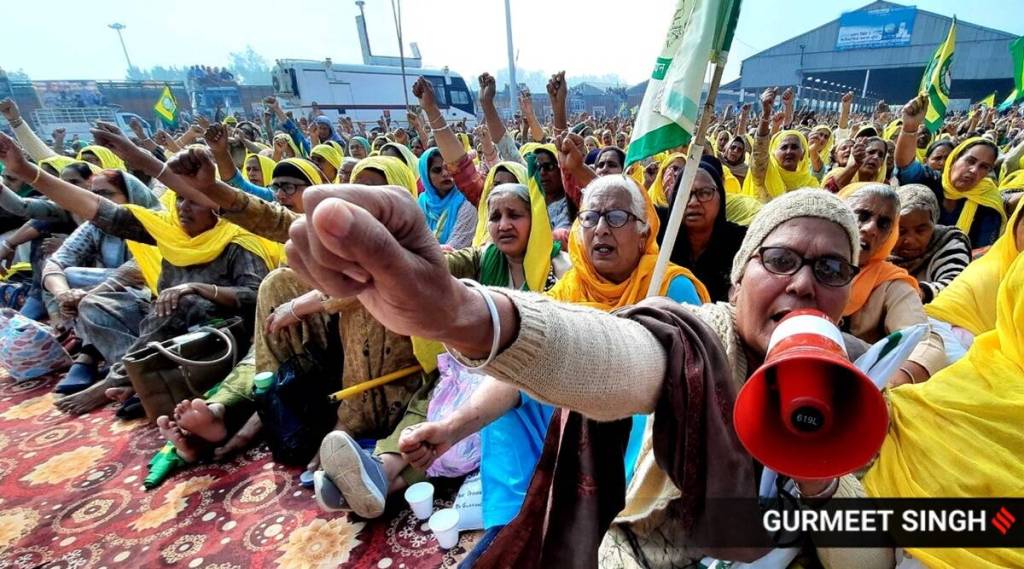The electoral battle in Uttar Pradesh began on Thursday with the first phase polling on 58 seats in the communally farmlands of western Uttar Pradesh. While the region is believed to set the tone for state poll narrative, it may turn out to be the decider this time in wake of the recent protests against farm laws.
While the ruling BJP is confident of repeating its 2017 performance when it won 53 out of the 58 seats in the area, the Samajwadi Party-Rashtriya Lok Dal alliance is banking heavily on the Jat-Muslim combination and has left no stone unturned to bring the two communities together, who had parted ways after the 2013 Muzaffarnagar riots.
Farmers’ angst
The SP-RLD alliance aims at capitalising on the farmers’ anger against the BJP-led governments at the Centre and state over the now-repealed farm laws. The Opposition has tried to depict the BJP as an anti-farmer party. The rallies addressed by Akhilesh Yadav and Jayant Chaudhary late last year clearly indicated the resentment of the farmers against the BJP.
Following the withdrawal of the farm laws, the ruling party has been carrying out firefighting operations and conveying the message that small farmers are on its priority.
However, the agrarian distress against the BJP was an issue in 2017 as well, but that did not hurt the saffron party’s sentiments with won 91 per cent seats in the area – an outcome of the scattered voting pattern by Jats and Muslims.
Sugarcane arrears
In western Uttar Pradesh, often referred to as ‘sugarcane belt’, the issue tops the list from farmers’ perspective. With sugar mills not clearing the pending dues of farmers over the past few years, the issue has snowballed into a political hot potato.
During 2014 Lok Sabha poll campaign, Prime Minister Narendra Modi and the Bharatiya Janata Party (BJP) assured to put in place a system, where cane farmers get their payments within 14 days of offloading their harvest at mills. However, the opposition alleges that the promise has not been fulfilled.
Amid the purported resentment, the UP government recently passed the Uttar Pradesh Ganna (Poorti Tatha Khareed Viniyaman) (Dwitiya Sanshodhan) Adhiniyam, 2021 that provides additional powers to government officials to recover sugarcane dues from the sugar mills.
Kairana Mass Exodus
Kairana has 80 per cent Muslim voters and stands accused of engineering the exodus of Hindus residents. The BJP has held the erstwhile Samajwadi Party government responsible for the alleged exodus of more than 300 families, as claimed by late BJP MP Hukum Singh.
The BJP has claimed that those families returned to the communally sensitive area after the Yogi Adityanath government came to power in 2017.
In the recent election rallies, top BJP leaders have been reminding the voters of the situation during the SP reign while claiming an improved law and order under the Yogi Adityanath government. The issue, however, has had communal overtones and was seen as a polarising factor in the last polls.
Jat-Muslim brotherhood
The 2013 Muzaffarnagar riots, in which over 50 people were killed and 50,000 affected, had shredded the relationship between Hindus, particularly Jats, and Muslims. This also led to the divergence of Jat voters towards the Hindu and Muslim voters towards the Samajwadi Party, making the region polarised.
In the 2014 Lok Sabha elections that followed, the BJP’s Sanjiv Baliyan, a Jat who is an accused in the 2013 riots cases, won the Muzaffarnagar seat with a record margin of close to 4 lakh votes, and 59 per cent of the vote.
However, this time, the SP’s tie-up with the Rashtriya Lok Dal, which enjoys significant clout in western UP, could tip the scale against the BJP. Many feel that the enormous support that the RLD has been drawing at Kisan Mahapanchayats in indicative of the resentment of the Jat voter against the BJP.
Political analysts feel that the SP-RLD-Bhim Army combine could bring Muslims, Jats and Dalits on a single platform and this could upset the BJP’s apple cart in region.
Fragmented Opposition
The farmers of western UP, particularly the Jat farmers, have been expressing discontent against the BJP since 2016 when the Narendra Modi government announced demonetisation. Since then, a major percentage of voters in the region have not been extending support to the BJP. In the 2017 UP assembly polls and 2019 general elections, the BJP won 37 and 27 seats in western UP respectively, arguably with some support from farmers.
Secondly, even if the voters of the region decide not to vote for the BJP, it is not clear which party will gain from it as the second biggest party in the area is the BSP, which is weak in other parts of the state.
The SP-RLD alliance is banking heavily on the Jat-Muslim combination. Notably, the Jat-Muslim division had proved costly for the RLD in the past as it failed to open its account in the 2014 and 2019 Lok Sabha elections and won just one seat in the 2017 state polls.


